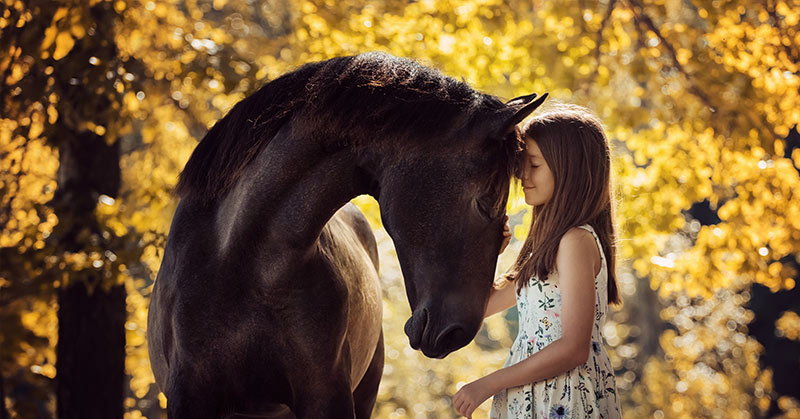Horses were first domesticated 6,000 years ago in the grasslands of Russia, Ukraine, and Kazakhstan [1] and have played a huge role in human history. For countless centuries, horses were the quickest way for humans to get from point A to point B. Today, there are more than 9 million horses in the USA alone.
If you ask anyone who owns horses or has spend any length of time around them, they’ll probably tell you stories of the animals having an incredible ability to connect with humans. You look into their eyes and can get a sense for what it is that they’re thinking – and feeling – and it feels like somehow they understand you.
What was once a gut feeling is now being backed up by science. A study conducted by researchers at the University of Sussex and the University of Portsmouth in 2018 has found that horses are able to understand and remember human emotions. [3] Other studies have concluded similar findings, reporting that horses are able to recognize human faces and the meaning of our expressions. [4]
To conduct their study, researchers showed domestic horses photographs of different humans with different facial expressions, mostly angry and happy expressions. The horses were later shown photographs of humans with a more neutral expression, seeming neither happy nor sad. Researchers analyzed the eye movements of the horses and saw that the horses who were shown photos of angry faces reacted as if threatened.
How can you tell if a horse is threatened? Previous studies found that horses tend to examine things with their left eye when they perceive something negative or threatening. [5]
The researchers were not made aware of what the photographs were depicting so not to accidentally change their behavior to mimic the faces seen in the photos.
“We know that horses are socially intelligent animals, but this is the first time any mammal has been shown to have this particular ability,” Portsmouth research Leanne Proops said.
“What’s very striking is that this happened after just briefly viewing a photograph of the person with a particular emotional expression — they did not have a strongly positive or negative experience with this person.”
“What we’ve found is that horses can not only read human facial expressions, but they can also remember a person’s previous emotional state when they meet them later that day — and, crucially, that they adapt their behavior accordingly,” said Professor Karen McComb from the University of Sussex in a news release.
It can be a challenge to know what’s happening inside the mind of an animal. We have a tendency to force a human narrative onto the behavior of animals. But in the case of horses, there may be something to it. They seem to be able to understand basic human emotions and the faces we use to express them. You can read the full published study in Current Biology.

